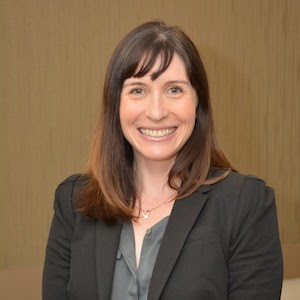Laurie M. Craigen, PhD
 Core Faculty and Associate Professor
Core Faculty and Associate Professor
Education
I received my BA in psychology from the College of the Holy Cross in Worcester, Massachusetts. Additionally, I attained my EdS in School Psychology and my PhD in Counselor Education at the College of William and Mary in Williamsburg, Virginia.
Biography
I am currently an Associate Professor in the Mental Health Counseling and Behavioral Medicine Program here at Boston University. Most recently, I was an Associate Professor in the Department of Counseling and Human Services at Old Dominion University in Norfolk, Virginia. For the past ten years, I have worked in a private practice setting. My client base consisted largely of adolescents and young adults presenting with a variety of mental health concerns, particularly self-injurious behavior. My research interests include self-injurious behavior, suicide, trauma, secondary traumatic stress, and the unique needs of military-connected children and their families. In addition to my research endeavors, I am committed to international learning experiences. I recently co-developed an international service-learning program in San Jose, Costa Rica, assisted a colleague in a study abroad program in Dublin, Ireland, and participated in a trauma-healing program for children in South Africa. In addition to international programming, I also developed online courses in human methods and family guidance.
Questions and Answers
Q: Please describe your theoretical orientation and teaching philosophy
A: My theoretical orientation is categorized as “technical
My teaching philosophy is student-centered and collaboratively based. With me in the position of instructor, I also expect to be taught by my students; we will learn together in many endeavors. With my focus on collaboration, I also emphasize the importance of students working together in groups. In my eyes, some of the best learning results from students working together, sharing perspectives, and challenging one another to think in new and different ways. As an instructor, I also believe that there must be an appropriate balance between challenge and support to facilitate learning. So, while my expectations for all students are extremely high, I also make it a point to consistently validate and praise my students for their efforts. Of greatest
Q: Why did you choose to be a faculty member in the Mental Health Counseling and Behavioral Medicine Program?
I was drawn to the program at Boston University’s Mental Health Counseling and Behavioral Medicine Program for a number of reasons. First, I wanted to be a part of a CACREP Mental Health Counseling program. I graduated from a CACREP program and I wanted to join a
Q: What do you enjoy most about teaching in the Mental Health Counseling and Behavioral Medicine Program?
In addition to being a part of a program faculty that values teaching, I also enjoy interacting with students in a classroom setting. The students in the program are extremely intelligent and there were all quite successful in their undergraduate careers. It is also wonderful to work with students from diverse backgrounds. The students in the program arrive
In addition to the classroom teaching experience, I really enjoy sitting one on one with students. I enjoy the mentoring experience and I truly love watching students grow into their professional identity. I have been struck with the students’ passionate curiosity for working with others and their genuine passion for wanting to learn. It is this passion and excitement that also fuels my continued love for the field.